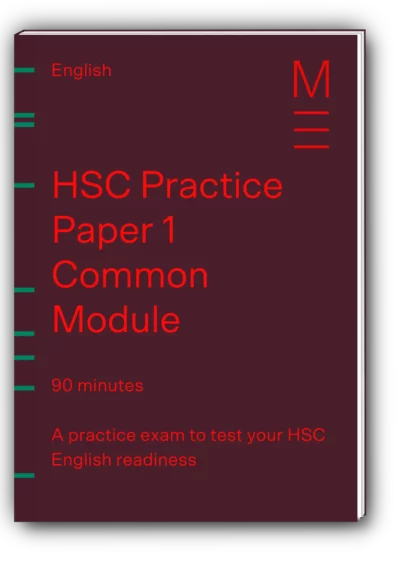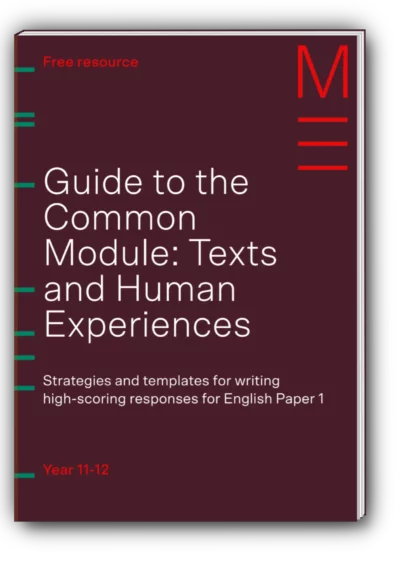Welcome to Matrix Education
To ensure we are showing you the most relevant content, please select your location below.
Select a year to see courses
Learn online or on-campus during the term or school holidays
Learn online or on-campus during the term or school holidays
Learn online or on-campus during the term or school holidays
Learn online or on-campus during the term or school holidays
Learn online or on-campus during the term or school holidays
Learn online or on-campus during the term or school holidays
Learn online or on-campus during the term or school holidays
Learn online or on-campus during the term or school holidays
Learn online or on-campus during the term or school holidays
Learn online or on-campus during the term or school holidays
Select a year to see available courses
Science guides to help you get ahead
Science guides to help you get ahead
Want to prepare for HSC English Advanced Paper 1? Write practice essays with these 20 Common Module: Texts and Human Experiences practice questions!

Join 75,893 students who already have a head start.
"*" indicates required fields
Related courses

Join 8000+ students each term who already have a head start on their school academic journey.
Need help preparing for HSC English Advanced Paper 1? Well, Matrix has your back, again! In this post, we’ve got 20 Common Module practice essay questions for you to get HSC ready with.
Below are 20 practice questions for the Common Module Paper 1. Some of these questions are general questions and others are specific to form.
We recommend that you use these practice questions to either:
Note: Some of these questions asks you to discuss a specific text. Feel free to adapt these to your own prescribed texts!
Remember, it is always a good idea to practice a wide range of questions. You must not rely on a prepared response.
Simulate the HSC experience with our Mock Paper 1!
Simulate exam conditions and test your English skills with this full Mock Paper Fill out your details below to get this resource emailed to you. "*" indicates required fields
Download your English Advanced HSC Mock Paper!

Download your English Advanced HSC Mock Paper!
Inevitable conflict invites individuals to see the world differently and bring anomalies to light.
Evaluate this statement with close references to your prescribed text.
Evaluate how composers use evocative imagery to represent the power of human desires and their effect on individuals.
In your response, make detailed reference to the text.
Storytelling is simply a metaphor that helps people deal with the harsh truth of the human condition.
How does the text you studied affirm or challenge this statement? In your response, make detailed reference to the text.
Humans need to embrace every aspect of the human experience – including the goods and bads – to undergo pleasantly surprising changes in life.
Critically evaluate this statement with references to at least 2 of Rosemary Dobson’s poems. In your response, make detailed reference to the text.
Composers use features unique to their media and form to offer insightful perspectives on human experiences that forces audiences to self-reflect.
Evaluate this statement with close references to your prescribed text.
“Living a good life is like flipping pancakes. If you hesitate, it splatters all over the place.” – Matt Simpson.
Evaluate how George Orwell’s Nineteen Eighty-Four reflects this statement by functioning as a cautionary tale. In your response, make detailed reference to the text.
Composers document their personal experiences in stories to reflect and learn. As such, their personal and wider contexts are usually interwoven in these stories.
Explain how the use of narrative voice in non-fiction texts reflect the above statement. In your response, make detailed reference to the text.
To what extent does Shakespeare’s Merchant of Venice challenge audiences to reflect on the complexities and tensions of human experiences throughout time.
In your response, make detailed reference to the text.
Texts are known to explore human flaws that are uncomfortable, yet simultaneously, wonderful.
Evaluate how Arthur Miller’s use of representation in The Crucible explores the above statement. In your response, make detailed reference to the text.
Our Matrix English course is taught by HSC subject-matter experts who will provide you with insightful feedback to enhance your responses!
HSC writing strategies from expert English teachers
Band 6 resources to get you exam-ready. Join the 96% of our students that have improved their marks.
How does Tim Winton’s innovative representation of the landscape present an insightful vision of the human experience?
In your response, make detailed reference to at least 2 stories from The Boy Behind the Curtain.
Stories often invite audiences to appreciate the power of human interactions and relationships to offer new insights into the world and oneself.
How does your text affirm or challenge the above statement? In your response, make detailed reference to the text.
Evaluate how George Orwell uses metaphors to represent the weaknesses and strengths of human qualities within a turbulent political zeitgeist. In your response, make detailed reference to the text.
Humans have an innate desire to judge others.
Discuss the effects of stereotypes and judgement on an individual’s sense of self in Ivan O’Mahoney’s Go Back to Where You Came From. In your response, make detailed reference to the text.
Evaluate how composers use evocative imagery to explore the similarities and differences between individual and collective human experiences.
Make close reference to your prescribed text.
One’s identity is ultimately shaped by their experiences and interaction with the wider world.
To what extent does your prescribed text explore this statement. In your response, make detailed reference to the text.
Human emotions and desires have the power to move mountains.
Discuss how your prescribed text uses its media and form to explore the above statement. In your response, make detailed reference to the text.
Society and their perspectives may change over time, but the human condition remains constant.
To what extent does Malala Yousafzai and Christina Lamb’s I am Malala explore the above statement. In your response, make detailed reference to the text.
An exploration of the human experience offers new insight on the world and of oneself.
Discuss how the composer of your prescribed text represented different experiences and attitudes to explore the above statement. In your response, make detailed reference to the text.
“Don’t bend; don’t water it down; don’t try to make it logical; don’t edit your own soul according to the fashion. Rather, follow your most intense obsessions mercilessly.” – Franz Kafka
Explore the above statement with close references to your prescribed text.
Composers represent relatable experiences to encourage audiences to recognise the connection between themselves and the wider world.
Evaluate the above statement and explore the importance of connections and relationships with detailed references to your prescribed text.
Strategies and templates for writing high-scoring responses for English Paper 1. Fill out your details below to get this resource emailed to you. "*" indicates required fields
Free Y12 Common Module Guide

Free Y12 Common Module Guide
Written by Matrix English Team
The Matrix English Team are tutors and teachers with a passion for English and writing, and a dedication to seeing Matrix Students achieving their academic goals.© Matrix Education and www.matrix.edu.au, 2025. Unauthorised use and/or duplication of this material without express and written permission from this site’s author and/or owner is strictly prohibited. Excerpts and links may be used, provided that full and clear credit is given to Matrix Education and www.matrix.edu.au with appropriate and specific direction to the original content.